Opinion
Imagining what the Buddha looked like
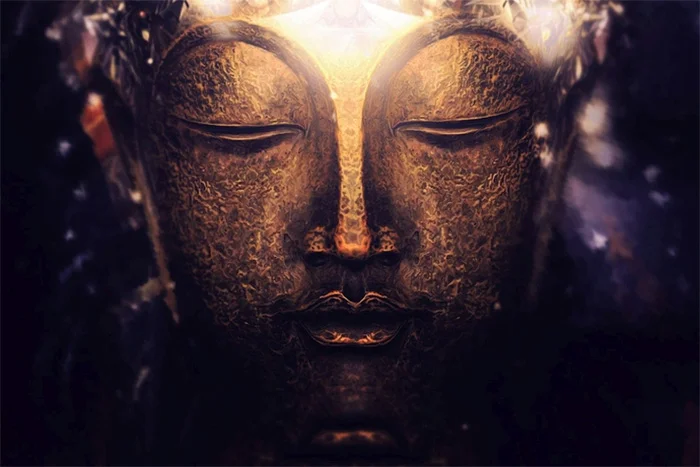
by Dr Upul Wijayawardhana
How would the Buddha have looked like in real life?” This question was posed by Prof. Asanga Thilakaratna, the Chief Editor of the Encyclopaedia of Buddhism, during one of the two analytical lectures delivered at the launch of the Sinhala translation of Bhante Dhammika’s ‘unusual’ biography of the Buddha “Footprints in the Dust”, by Venerable Kudagammana Seelarathana, on 8th January at the Nagananda Buddhist Institute in Kelaniya. “The image we get by looking at numerous sculptures, drawings and paintings of the Buddha as a plump, round faced individual may be far from the reality. After all, the Buddha went through a period of extreme starvation prior to attaining enlightenment and had a hard life, as well illustrated in this realistic biography” he commented prior to posing this question. As the title itself indicates, the Buddha travelled the length and breadth of ancient India on foot, most likely barefoot. Prof. Thilakaratna highlighted the uniqueness of this biography and pointed out the high quality of the translation by stating that when one reads Venerable Seelarathana’s work one does not get the feel that it is a translation.
No one who had seen the Buddha during life has made an accurate record of what He looked like and for centuries after Parinibbana, the Buddha was depicted in symbols. He never encouraged idol worship and named the Dhamma as His successor. He wanted us to tread the path shown but what have we done instead? We have made the Buddha supernatural and the deification is seen in all paintings and sculptures. Instead of following the Dhamma, we have wrapped it around in rituals and produced the religion of Buddhism, supplanting the philosophy, metaphysics and science of Buddha’s teachings.
The first sculptural depictions of the Buddha were made around the first century BCE, probably by Greek sculptors, in Gandhara region, currently in Afghanistan and Pakistan where once flourishing Buddhist civilisation has been replaced by Islamic culture. From then onwards, Buddha started being depicted in various parts of the world where Buddhism spread, giving the Buddha the appearance of that particular area. This is no surprise as Buddhism was a ‘religion’ that was interpreted through the lens of the culture of each respective area. The answer to Prof Thilakaratna’s question is that it probably is an almost impossible task but by reading Bhante Dhammika’s book, or the excellent Sinhala translation Duwille Renduna Piyasatahan by Venerable Seelarathana, we can imagine how the Buddha operated during his lifetime.
Although I was not able to be physically present, thanks to modern technology I was able to watch the proceedings on a Zoom broadcast and it was a gratifying moment for me.
In an article titled “Is there a need for another ‘Life of the Buddha’?” (The Island, 28 May 2022), I wrote the following:
“Bhante Shravasti Dhammika of Australia, a prolific writer, who has authored many books, keeps us informed of various aspects of Buddhism by his regular contributions to The Island and the Sunday Island. Thanks to an introduction by my good friend Tissa Devendra, I have been in regular touch with Bhante Dhammika and turn to him whenever I have a question on Buddhism. When he sent me a soft copy of his latest book, “Footprints in the Dust”, which carries the subtitle, “The Life of the Buddha from the Most Ancient Sources”, I asked myself, ‘Is there a need for yet another Life of the Buddha’? After all, there’s plenty to choose from!”
In fact, the other analytical presentation at this event was by Venerable Uduhawara Ananda, Head of the Department of Pali and Buddhist studies of the University of Colombo, who traced the lineage of biographies of the Buddha from ancient times to modern, emphasising the differences of Bhante Dhammika’s work, confirming what I stated in my piece:
“My doubts regarding the need for another biography of the Buddha started to melt away, as soon as I started reading this absorbing book with very realistic analysis of events. In fact, the book deals with much more than the title suggests and is an analysis of the life and the times of the Buddha. Most books on Buddha’s life are written with a reverential than an analytical attitude and do not put the prevailing conditions in India in context. These are the two major differences and the great strength of this monograph. Though some traditional Buddhists may not agree with Bhante Dhammika’s interpretations, as he is not shy in pointing out exaggerations, I have no disagreements whatsoever and have come to know the Buddha better; as an extraordinary human being, far ahead of his time who led a very simple life, walking barefoot across India, disseminating His message.”
Having written thus, I was convinced that Sinhala readers too should have the opportunity to explore this wonderful work but even before I could make this suggestion, Bhante Dhammika contacted me to find out whether I could translate or find a suitable translator. I had to admit that I had not inherited the translation abilities of my late father but was able to suggest Venerable Seelarathana on the basis of an excellent translation he made of an article of mine on the genius of Karunaratna Abeysekara. Though I am yet to meet Venerable Seelarathana, who is resident in the USA, I have learned since about his very significant contribution to Sinhala literature.
At the request of Bhante Dhammika, when I made the proposal, Venerable Seelarathana readily accepted the challenge and offered to be in contact with Bhante Dhammika and as they say ‘rest is history’. The proceedings commenced with Bhante Dhammika joining via Zoom from Australia to confer his blessings and I am much obliged to him for calling me the facilitator, though he got my name mixed up as Upali! Perhaps, Upali resonated better for Bhante Dhammika as Arahant Upali was one of the chief disciples of the Buddha, who specialised in monastic discipline. However, in Sri Lankan politics I have been occasionally confused with the great Upali Wijewardena. Then Upali wanted to contest a general election from Kamburupitiya and many thought it was me, as my father had contested from that electorate!
The two lectures delivered by Venerable Uduhawara Anada and Prof. Asanga Thilakaratna were masterful discourses and I hope that Venerable Seelarathana will be able to find time to translate them into English.
I do hope the Sinhala readers will extend a warm welcome to this valuable translation and no doubt it would evoke much discussion as some of the facts may go against the traditionally held beliefs, but it is high time we started appreciating the achievements of the Buddha as that of a human being; a supreme one at that, even though we cannot imagine what he looked like!
Opinion
LG polls, what a waste of money!
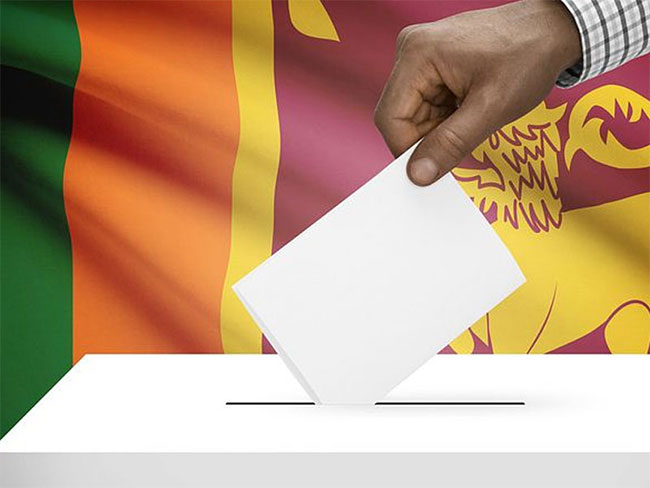
If the people of this country were asked whether they want elections to the local government, majority of them would say no! How many years have elapsed since the local councils became defunct? And did not the country function without these councils that were labelled as ‘white elephants’?
If the present government’s wish is to do the will of the people, they should reconsider having local government elections. This way the government will not only save a considerable amount of money on holding elections, but also save even a greater amount by not having to maintain these local councils, which have become a bane on the country’s economy.
One would hope that the country will be able to get rid of these local councils and revert back to the days of having competent Government Agents and a team of dedicated government officials been tasked with the responsibility of attending to the needs of the people in those areas.
M. Joseph A. Nihal Perera
Opinion
What not to do
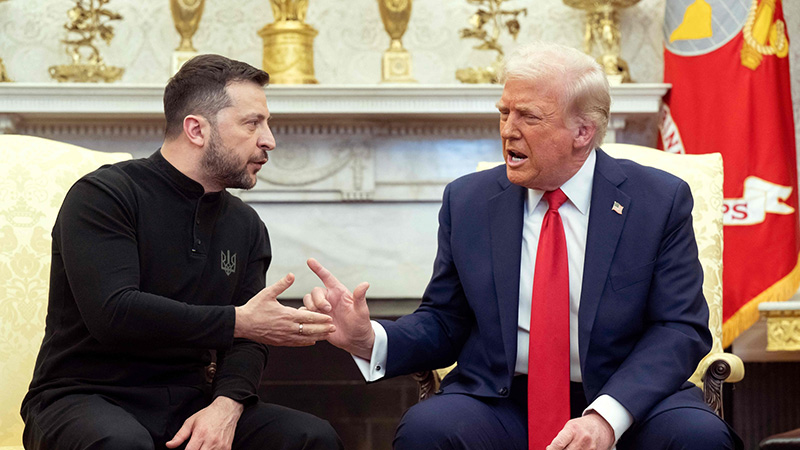
By Dr Upul Wijayawardhana
It is immaterial whether you like him or not but one thing is crystal clear; Donald Trump has shown, very clearly, who is the boss. Surely, presidents of two countries are equal; perhaps, that is the impression Volodymyr Zelensky had when he went to the White House to meet Trump but the hard reality, otherwise, would have dawned on him with his inglorious exit! True, the behaviour of President Trump and VP Vance were hardly praiseworthy but Zelensky did what exactly he should not do. Afterall, he was on a begging mission and beggars cannot be choosers! He behaved like professional beggars in Colombo who throw money back when you give a small amount!!
Despite the risk of belonging to the minority, perhaps of non-Americans, I must say that I quite like Trump and admire him as a straight-talking politician. He keeps to his words; however atrocious they sound! Unfortunately, most critics overlook the fact that what Trump is doing is exactly what he pledged during his election campaign and that the American voters elected him decisively. When he lost to Biden, all political commentators wrote him off, more so because of his refusal to admit defeat and non-condemnation of his supporters who rioted. When he announced his intention to contest, it only evoked pundits’ laughter as they concluded that the Republican Party would never nominate him. Undaunted, Trump got the party to rally round him and won a non-consecutive second term; a feat achieved only once before, by Grover Cleveland around the end of the nineteenth century. His victory, against all predictions, was more decisive as he got more collegiate votes and, even though it does not matter, won the popular vote too which he did not get when he got elected the first term. Even his bitterest critics should accept this fact.
Zelensky was elected the president of Ukraine after the elected pro-Soviet president was deposed by a ‘peoples revolution’ engineered by the EU with the support of USA. After this, the EU attempted to bring Ukraine to NATO, disregarding the Munich agreement which precipitated the Russian invasion. He should have realised that, if not for the air-defence system which Trump authorised for Ukraine during his first term, Russian invasion would have been complete. It may well be that he was not aware as when this happened Zelensky may still have been the comedian acting the part of the president! Very likely, Trump was referring to this when he accused Zelensky of being ungrateful.
Zelensky also should have remembered that he disregarded requests from Trump, after his defeat by Biden, to implicate Biden’s son in some shady deals in Ukraine and that one of the last acts of Biden was to pardon his son and grant immunity to cover the alleged period. Perhaps, actions of the European leaders who embrace him every time they see him, as a long-lost brother, and invitations to address their parliaments has induced an element of the superiority complex in Zelensky that he behaved so combative.
Trump wanted to be the mediator to stop the war and spoke to Putin first. Instead of waiting for Trump to speak to him, egged on by EU leaders Zelensky started criticising Trump for not involving him in the talks. His remark “He should be on our side” demonstrated clearly that Zelensky had not understood the role of a mediator. His lack of political experience was the major reason for the fiasco in the White House and the subsequent actions of Trump clearly showed Zelensky where he stands! PM Starmer and President Macron seem to have given some sensible advice and he seems to be eating humble pie. In the process Trump has ensured that the European nations pay for their defence than piggy-backing on the US, which I am sure would please the American voter. By the way, though Macron talks big about defence France spends less than 2% of GDP. Trump seems vindicated. Of course, Trump could be blamed for being undiplomatic but he can afford to be as he has the upper hand!

Ranil on Al Jazeera
Zelensky has shown what not to do: instead of being diplomatic being aggressive when you need favours! Meanwhile, Ranil has shown what not to do when it comes to TV interviews. God only knows who advised him, and why, for him to go ‘Head to Head’ with Mehdi Hasan on Al-Jazeera. Perhaps, he wanted to broadcast to the world that he was the saviour of Sri Lanka! The experienced politician he is, one would have expected Ranil to realise that he would be questioned about his role in making Sri Lanka bankrupt as well, in addition to raising other issues.
The interview itself was far from head to head; more likely heads to head! It turned out to be an inquisition by Tiger supporters and the only person who spoke sense being Niraj Deva, who demonstrated his maturity by being involved in British and EU politics. The worst was the compere who seems keen to listen his own voice, reminding me of a Sinhala interviewer on a YouTube channel whose interviews I have stopped watching!
Ranil claims, after the interview was broadcast, that it had been heavily edited reduced from a two-hour recording. Surely, despite whatever reason he agreed to, he should have laid ground rules. He could have insisted on unedited broadcast or his approval before broadcast, if it was edited. It was very naïve of Ranil to have walked in to a trap for no gain. Though his performance was not as bad as widely reported, he should have been more composed at the beginning as he turned out to be later. Overall, he gave another opportunity for the Tiger rump and its supporters to bash Sri Lanka, unfortunately.
Medhi Hasan should watch some of David Frost interviews, especially the one with Richard Nixon, and learn how to elicit crucial information in a gentle exploratory manner than shouting with repeated interruptions. He does not seem to think it is necessary to give time for the interviewee to respond to his questions. I will never watch Al-Jazeera’s “Head to Head” again!
Ranil’s best was his parting shot; when asked by Hasan whether he would contest the next presidential election, he said “No, I will retire and watch Al-Jazeera and hope to see you better mannered”!
Opinion
Ajahn Brahm to visit SL in May 2025
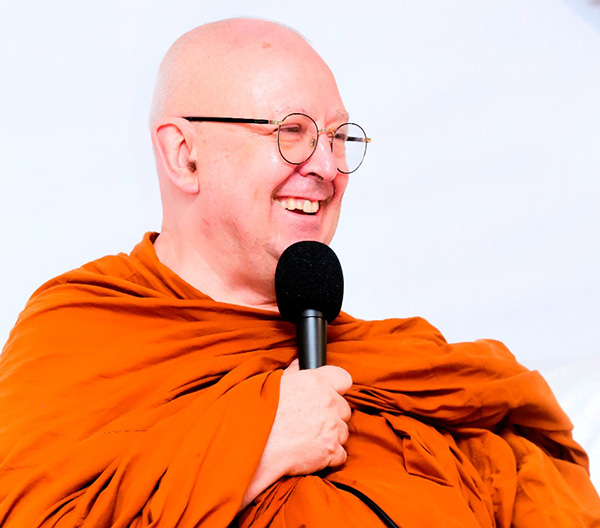
The Ajahn Brahm Society of Sri Lanka (ABSSL) is pleased to announce that Ajahn Brahm will be visiting Sri Lanka for a short stay in May this year. Many, both Buddhists and non-Buddhists, know him and have listened to his addresses made on earlier visits, including his 2023 public talk at the BMICH, which was attended by over 4,000 people.
Ajahn Brahmavamso, popularly known as Ajahn Brahm, is the Head Abbot of Bodhinyana Monastery in Serpentine, Perth. He was a pupil of the famous Thai forest monk Ajahn Chah, considered the best Theravada meditation teacher in the last century. By his own choice, Ajahn Brahmavamso shortened his name and was extra pleased that the initials represent the major religions of the world. He is renowned world-wide as an outstanding meditation bhikkhu, teacher and instructor, guiding thousands of practitioners.
As in previous visits, Ajahn Brahm’s schedule will be packed with addresses, meetings with senior professionals, business leaders, and researchers. This year, a special session has been included for teenagers and young adults.
The agenda planned for him includes:
·
Public address at the BMICH to all irrespective of religion and age; then to a younger audience.
· Exclusive Leadership Forum for senior professionals and business leaders.
· Forum with academics engaged in research at the Centre for Meditation Research, University of Colombo.
· A week-long meditation retreat for the Ven Sangha and experienced lay meditators.
Public Addresses
The public addresses will be on Sunday, May 18, 2025, from 7:00 am to 11:00 am, at the BMICH Main Hall and Sirimavo Halls; Ajahn Brahm moving from one hall to another so the entire audience sees him. Each hall will be well equipped with audio and video presentation. The first address: The Art of Meaningful Living, is designed for all, age notwithstanding, offering wisdom and practical insights for a fulfilling life. The second: Coping with Life Transitions and Emotional Challenges, is a special session tailored for teens and young adults, addressing key challenges faced by them in today’s fast-paced, competitive world. Both talks will be in English, with concise translation to Sinhala by Ven Damita Thera.
Exclusive Forums
On Saturday, May 17, 2025, two exclusive forums will be held at the BMICH Committee Room, Jasmine Hall. The first such session will be with eighty invited Sri Lankan academics and scientists engaged in research on meditation at the Centre for Meditation Research of the University of Colombo. This will be followed in the evening by an interactive session for a hundred invited senior professionals and business leaders, featuring a talk on leadership followed by a Q&A session.
Meditation Retreat
The most significant item on Ajahn Brahm’s programme will be a week-long meditation retreat at the Barberyn Waves Ayurveda Resort in Weligama. Focus is intended to be on the fifty members of the Ven Sangha. A limited number of experienced lay meditators will also have the opportunity to participate.
Participation & Registration
Those interested in attending the public talks at the BMICH are kindly advised to register at to secure free passes. For further information, please contact the Ajahn Brahm Society of Sri Lanka at .
-

 Editorial7 days ago
Editorial7 days agoRanil roasted in London
-
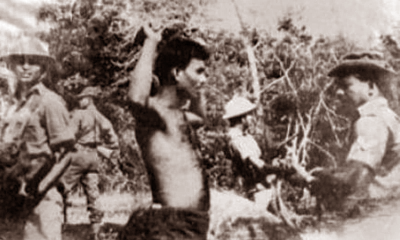
 Features7 days ago
Features7 days agoThe JVP insurrection of 1971 as I saw it as GA Ampara
-

 Opinion6 days ago
Opinion6 days agoInsulting SL armed forces
-

 News4 days ago
News4 days agoAlfred Duraiappa’s relative killed in Canada shooting
-
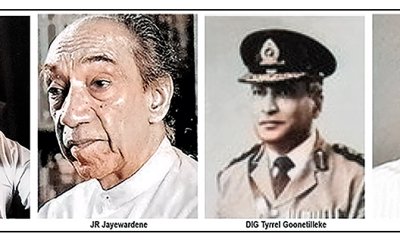
 Features7 days ago
Features7 days agoMr. JR Jayewardene’s passport
-
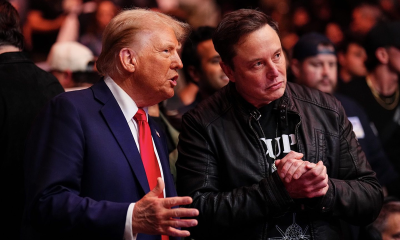
 Features7 days ago
Features7 days agoAs superpower America falls into chaos, being small is beautiful for Sri Lanka
-
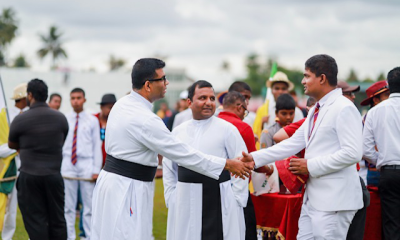
 Opinion7 days ago
Opinion7 days agoBeyond Victory: sportsmanship thrives at Moratuwa Big Match
-
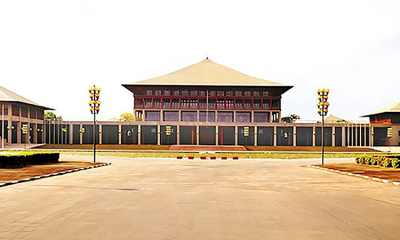
 Features7 days ago
Features7 days agoMemorable moments during my years in Parliament












